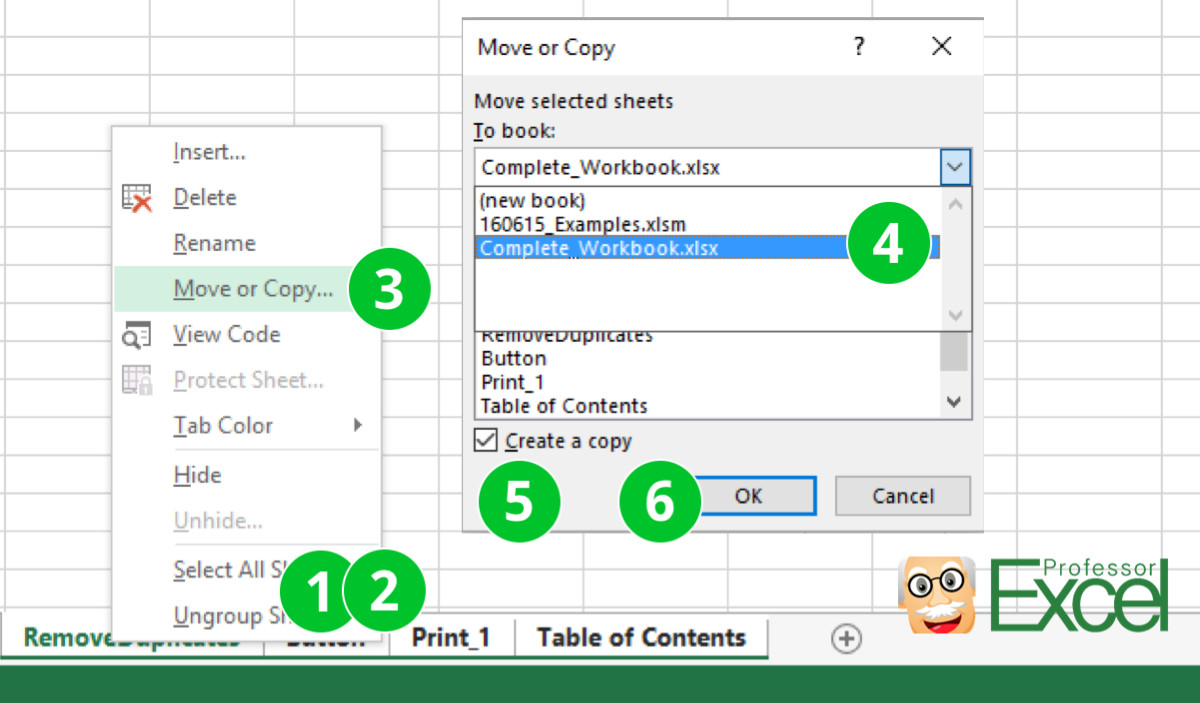Combine Excel Sheets Easily: Ultimate Workbook Guide

Introduction to Combining Excel Sheets

When you have multiple Excel workbooks with sheets that contain related data, you might find yourself in need of combining those sheets for better data management, analysis, or reporting. Excel doesn't offer a built-in function to merge worksheets from different files directly. However, there are several methods to achieve this efficiently, each with its own advantages. This guide will explore some of the most effective techniques to combine Excel sheets, allowing you to create a more organized and powerful dataset.
Methods to Combine Excel Sheets

1. Using Excel's Power Query

Power Query is a powerful data transformation tool in Excel that can help you consolidate data from various Excel files with ease. Here's how you can use Power Query to merge sheets:
- Open Excel and go to the "Data" tab.
- Select "Get Data" > "From File" > "From Folder."
- Navigate to the folder containing your Excel files, select it, and click "OK."
- Power Query will then list all the files in that folder. Click on "Combine" > "Combine & Load."
- In the "Combine Files" dialog, choose the sheet or table you want to combine from each file. If sheets in your files have different names, you might need to manually select each file's sheet.
Power Query automatically detects the common columns among the sheets, aligning them as it merges the data.
💡 Note: Ensure that your Excel files are in the same folder and that the sheets you want to combine have a similar structure or header names to facilitate the merging process.
2. VBA Macros for Advanced Users

For those comfortable with VBA, creating a macro to merge sheets from different workbooks can be incredibly time-saving:
- Open the Excel workbook where you want to combine the data.
- Press Alt + F11 to open the VBA Editor.
- Go to Insert > Module, then paste the following VBA code into the new module:
Sub MergeExcelFiles()
Dim FolderPath As String
Dim FileName As String
Dim WS As Worksheet
Dim wb As Workbook
Dim wb1 As Workbook
Dim SourceRange As Range
Dim DestRange As Range
With Application.FileDialog(msoFileDialogFolderPicker)
.Title = "Select the folder where the Excel files are located"
.ButtonName = "Select"
If .Show = -1 Then
FolderPath = .SelectedItems(1)
Else
MsgBox "You must select a folder!"
Exit Sub
End If
End With
FileName = Dir(FolderPath & "*.xls*")
Application.ScreenUpdating = False
Set wb1 = ThisWorkbook
wb1.Sheets("Sheet1").Cells.Clear
Do While FileName <> ""
Set wb = Workbooks.Open(FolderPath & FileName)
For Each WS In wb.Worksheets
If WS.Name <> "Sheet1" Then
With WS.UsedRange
Set SourceRange = .Resize(.Rows.Count + 1, .Columns.Count).Offset(-1)
End With
If DestRange Is Nothing Then
Set DestRange = wb1.Sheets("Sheet1").Range("A1").Resize(SourceRange.Rows.Count, SourceRange.Columns.Count)
Else
Set DestRange = DestRange.Resize(DestRange.Rows.Count + SourceRange.Rows.Count - 1)
End If
SourceRange.Copy DestRange
Set DestRange = DestRange.Offset(SourceRange.Rows.Count, 0)
End If
Next WS
wb.Close False
FileName = Dir
Loop
Application.ScreenUpdating = True
End Sub
Save and run the macro to merge all Excel files in the selected folder into the current workbook.
🔐 Note: This method requires VBA proficiency and a basic understanding of programming concepts.
3. Manual Method Using Copy Paste

Although less efficient for large datasets, the manual method can work for small-scale merging:
- Open the first workbook from which you want to copy data.
- Select the entire data range or specific cells from the sheet you need, then press Ctrl+C to copy.
- Navigate to the workbook where you want to combine the data. Right-click on the destination cell and choose Paste.
- Repeat the process for each workbook, aligning the data as needed.
📝 Note: This method can be tedious and error-prone for large datasets; consider automation when dealing with multiple sheets or files.
Comparing the Methods

| Method | Complexity | Automation | Scalability |
|---|---|---|---|
| Power Query | Medium | High | Excellent |
| VBA Macro | High | Very High | Good |
| Manual Copy Paste | Low | None | Poor |

Each method has its place:
- Power Query is the go-to for regular, repeatable tasks where data consistency is crucial.
- VBA Macros are ideal for custom operations or when you need to perform complex data manipulation.
- Manual Copy Paste works best for ad-hoc tasks with a few sheets.
Key Takeaways

Combining Excel sheets can greatly simplify your data analysis and reporting tasks. Whether you opt for the built-in capabilities of Power Query, the customization of VBA macros, or the straightforwardness of manual merging, each method offers benefits suited to different scenarios. Remember that while automation and complexity might be intimidating, they often lead to significant time savings and improved accuracy in your data work.
What is Power Query?

+
Power Query is a data connection technology that enables you to discover, connect, combine, and refine data across a wide variety of sources, allowing for advanced data preparation in Excel.
Can I combine sheets from different Excel files without VBA?

+
Yes, Power Query is an excellent tool for merging Excel sheets from different files without the need for VBA.
Is it possible to automate merging sheets using macros?

+
Yes, you can automate the process of combining sheets using VBA macros, which can be customized to fit complex requirements.



